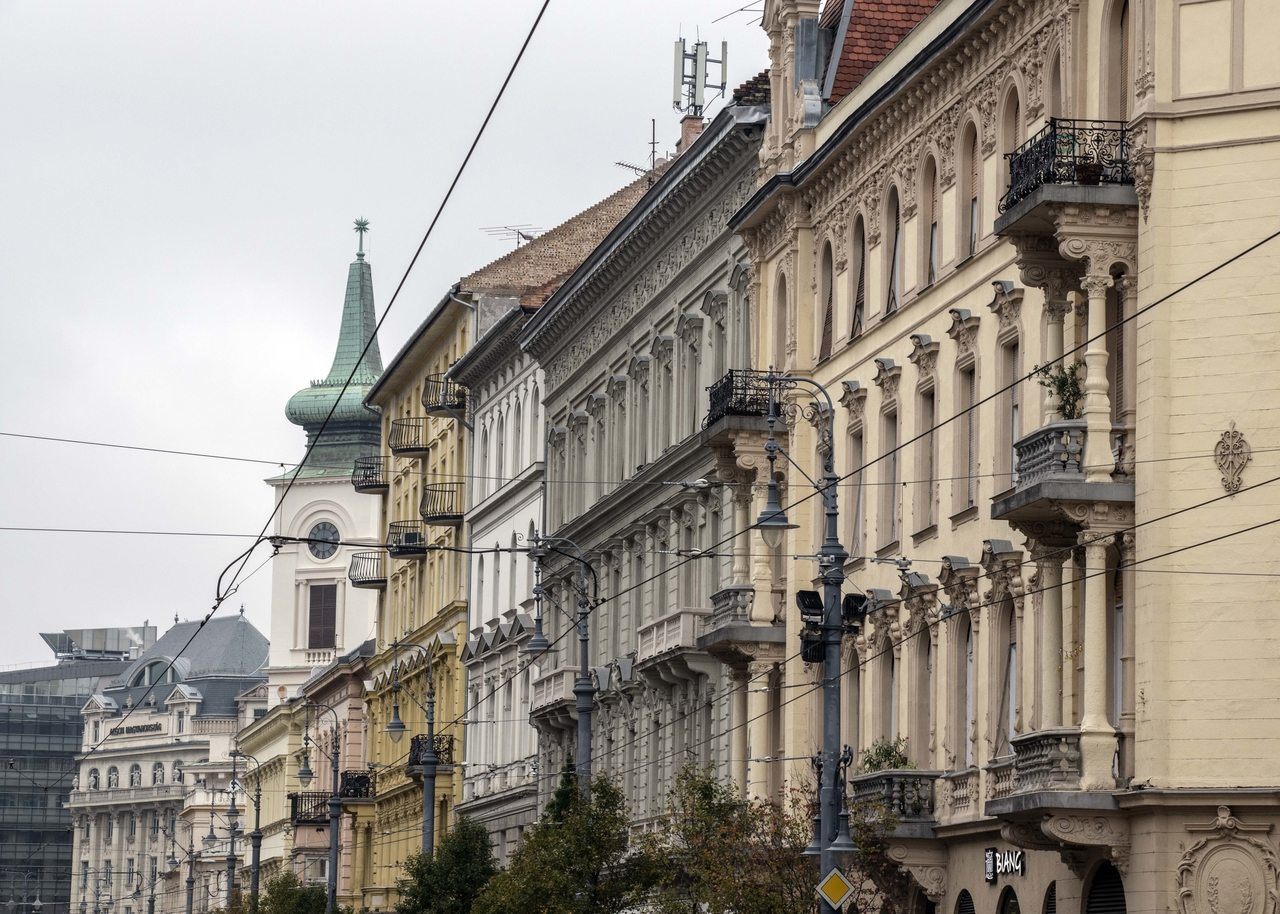Hungarian real estate market to turn upside down in the next months
For the first time in several years, it is uncertain which way the real estate market will move in Hungary. According to experts, it might happen that rising loan interest rates and increasing overheads will lead to a fall in average house prices per square metre nationwide.
Real estate prices have been steadily rising in Hungary since 2015. The average price per square metre of a dwelling in Hungary was EUR 2,014 in 2021. According to a recent study by Deloitte Property Index, it takes 9.6 years to save the full annual average gross salary in Hungary to buy your own property – reported by Pénzcentrum.
The increase of the previous years was driven by several factors: rising real wages due to a tight labour market, very cheap access to credit due to a low interest rate environment, yields of up to 8-9 percent on investment purchases, a steady rise in inflation expectations, government subsidies (housing tax rebates, home renovation programmes, social security refunds, 13th-month pensions, etc.) have also been a driving force in the upturn of the housing market earlier.
However, the situation has turned upside down in the last year. Real wage growth has slowed down significantly due to rising inflation. The base rate is above 10 percent, which makes housing loans much more expensive. The yield on investment property purchases has roughly halved as a result of the increase in the burden. It is no longer inflation expectations that are high, but inflation itself. Some government subsidies are still in place, but the effects of the one-time ones have already worn off, as well new difficulties have emerged due to the high utility bills. As a result of all these factors, the average price per square metre has stalled for several property types – reported by Forbes.
According to analysts, the next six months will see a reversal of the status quo and a drastic change in the real estate market. Although this does not necessarily mean a fall in prices in the property market, some experts believe that it could even happen. Analysts point out that if average sales prices start to fall, this is due to factors that negatively affect the majority of the population, such as a drastic drop in solvent demand, i.e. a crisis. Thus, despite the fall in house prices, no surge in purchases is expected. According to other experts, despite the deterioration in financial conditions, there is no sign that average price growth has slowed down. For some types of property (typically Budapest city centre apartments), prices per square metre have stagnated, but for several types they have even increased.
Inflation, which is now above 13 percent and is likely to accelerate further until the end of the year, is affecting the housing market on several fronts. Firstly, disposable income has fallen significantly, and secondly, the increase in the floor rate has made lending rates much more expensive. On the investor side, inflation is also being felt, with property investment no longer as lucrative as it was a few years ago. But those times are over: an inflation-tracking government bond or a more stable dividend-paying stock now offers a better return than real estate.
The partial phasing out of the utility reduction is another important factor. Household energy prices, which could increase many times over, are also disrupting supply, demand and pricing. According to experts, sellers will only face maintenance costs in the coming months. Towards the end of the year or early next year, there will be a greater number of apartments on the market whose prices will already include the higher utility bills. This will also create a situation we have not seen for a long time: the sell-side will be forced to move. The utilities of many properties will simply be unaffordable for owners. This market trend will push real estate prices down.
The average price per square metre of properties with substandard energy equipment is likely to start falling by the winter. The price of such apartments will be negotiable. On the other hand, more energy-efficient and sustainable properties will be more in demand, and prices are expected to rise further. Similarly, prices of panel flats may continue to rise, as most Hungarian panels are heated by district heating, which has been exempted from the new utility rules. Therefore, their maintenance costs will not increase dramatically. According to experts, there will be a slowdown in both construction and buying in the market from autumn to winter. More activity is expected only from the beginning of next year in the real estate market.
Analysts say it is not worth waiting until prices start to fall before buying. And not just because it is by no means certain that the property you are looking at will be cheaper. According to the experts, the reasons for this are inflation and the rise in interest rates, which means that it will be slightly cheaper to buy a home if it is much more expensive to take a loan for it.

Read alsoHungarian rental market is facing a huge change: could energy-saving apartments be the future?
Source: penzcentrum.hu, forbes.hu
please make a donation here
Hot news
Yay or nay? – 6 odd Hungarian delicacies that make our skin crawl
Budapest tourism “exploded” this past weekend
Container transport in Budapest may stop: How will this affect Hungarian economy?
Minister: Hungary will protect its territory by every means possible
Orbán cabinet may double airspace fee: another ticket price increase?
Hungary expanding the list of prohibited designer drugs





4 Comments
Carnage – is growing in momentum in the property market scene in Budapest, Hungary.
This has been “simmering: for near on 18 months – “veiled” from the general public by propaganda through the industry and being told by the present Government, which NOW – the PRESSURE – from all sectors on the Hungarian economy, the Flood Gates are factually ready to OPEN.
JUST ask Your-self this QUESTION – what is GOING to SUSTAIN – the Hungarian Economy ???
REMEMBER ;
“When the yoke is broken, the burden is REMOVED.”
Most new build apartments (as in the last 10 -15 years) have district heating systems either through radiators (the water flow is metered) or more recently through an air conditioning type of unit that is hooked up to a central plant that provides heat and cool air through heated water and chilled water pipes, often using heat pumps. The water flow supporting these units is also metered. It is not just the old panel houses (for those who don’t know, they are ex social housing unit blocks of flats built on a cheap panel system) that have district heating.
You have to be a real scumbag to take 27% VAT on water, electricity, gas and most food items but take only 5% VAT on luxury houses like the villa someone builds near me (with a huge swimming pool).
Very nice that people buying water and food subsidies with their VAT his swimming pool.
“Our differences matter, but our common HUMANITY matters more.”
Humanity – unseen in the idealogy of this Hungarian Government.
Then ask does it have a Heart & Soul ?
Social Inequality & Social Equality – dismissed – isn’t EVIDENT, in the attitude taking into account – Humanity, Heart & Soul – of this present Government of Hungary.
Dictatorial – based on POWER – that is FOCUSED – driven by the Prime Minister of Hungary – Victor Orban – on what as Government Ministers, the hierarchy – the “inner sanctum” plus the Oligarchs – of the Fidesz Party – can “bleed” get out off and from – the citizens of Hungary – millions of them – from “all stations in life.”
To think or consider – that the Orban led Government of Hungary – was a CARING government – could be RIGHTFULLY viewed as Ludicrous – foolish, un-reasonable, or out of place – to be LAUGHABLE.